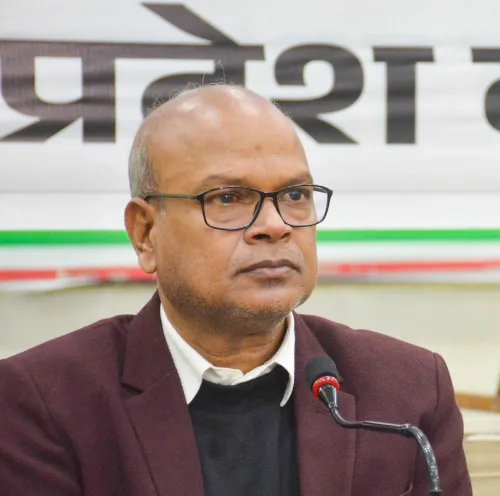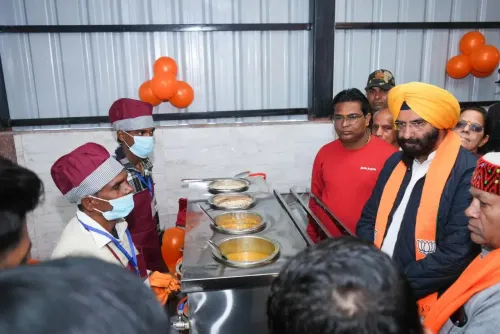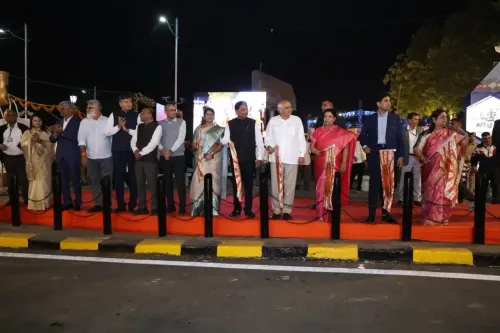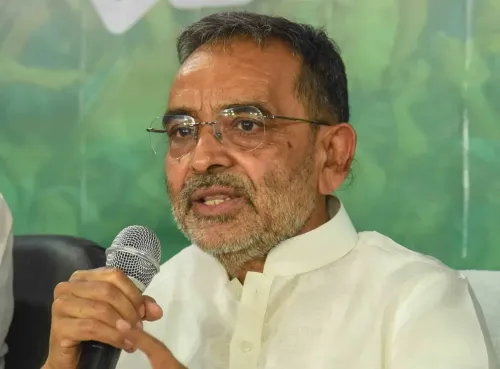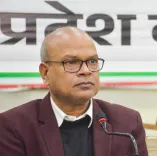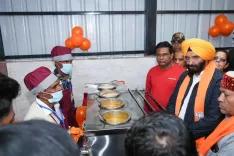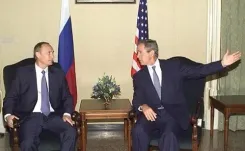What's Next in the Battle for Justice? Abdul Wahid Sheikh Reacts as SC Pauses Acquittal of 12 in 2006 Mumbai Train Blasts Case
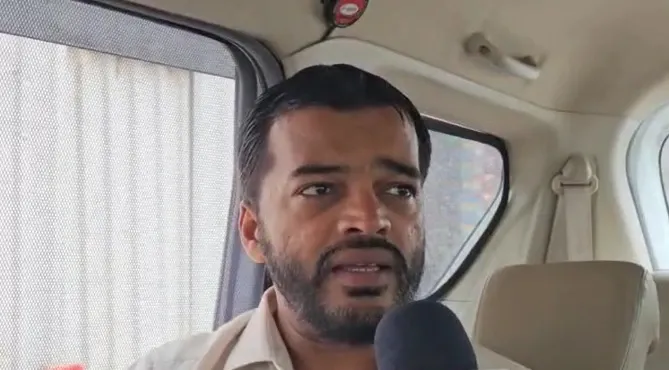
Synopsis
Key Takeaways
- Abdul Wahid Sheikh is the only individual acquitted in the 2006 Mumbai train blasts.
- The Supreme Court has paused the acquittal of the remaining accused.
- This ruling brings relief to the families affected by the bombings.
- The Bombay High Court had previously declared the prosecution's case as a failure.
- The ongoing legal battle highlights the complexities of justice in India.
Mumbai, July 24 (NationPress) Abdul Wahid Sheikh, the only individual exonerated in the 2006 Mumbai train blasts case by a special court in 2015, shared his relief after the Supreme Court on Thursday put a pause on the Bombay High Court's recent decision that acquitted all 12 other accused. Sheikh noted that while there are challenges ahead, the fear has dissipated.
In an interview with IANS, Sheikh, also an advocate, remarked that the stay provides emotional comfort to the families, despite ongoing legal uncertainties.
"This is a tremendous relief for their families. There was a sense of panic following the challenge to the acquittal, but now they can fully embrace their loved ones and celebrate important occasions like Eid, Diwali, or even everyday moments at home—experiences that have been denied to them for so long," he stated.
In response to the Supreme Court's ruling, Sheikh commented: "After the High Court’s decision, we were elated. The accused were released and reunited with their families. However, the government couldn’t stand even a day of our joy—they quickly approached the Supreme Court. Since then, there has been constant anxiety about possible re-arrests or jail time."
He maintained close contact with the freed individuals, providing them reassurance during these stressful moments.
"I kept reminding them—don’t panic. Even if the case continues, it’s merely a legal formality. At worst, the case will remain pending. Today, the prosecution even clarified that they weren’t seeking arrests—only a legal stay to prevent the judgment from setting a precedent," he conveyed to IANS.
Sheikh emphasized that the Supreme Court's decision does not alter the current freedom of the acquitted individuals.
"They are still out of jail. They will remain with their families as the case unfolds. Yes, they will need legal representation and must appear in court, but they are not returning to prison. That is a relief," he underscored.
When asked whether he anticipated the Supreme Court's intervention following the High Court's sweeping acquittal, Sheikh replied: "This is part of the legal process. The state has the right to appeal, so it was not unexpected. Had the court ordered their re-arrest, that would have been shocking. But this? This is just procedure."
However, he did not shy away from criticizing the state.
"It’s disgraceful. These men were declared innocent after nearly 19 years behind bars. Now, despite the court recognizing that the prosecution failed to prove anything, we must continue this legal struggle in the Supreme Court. It’s tragic and reflects poorly on our political leadership and investigative agencies. This kind of harassment of innocents must cease," he stated.
Sheikh further declared their readiness to fight this case once more.
"We are prepared. Every day, we are ready. We’ve enlisted the support of Jamiat Ulema-e-Hind, who have stood by us from the start. Their legal team worked tirelessly during the Delhi court proceedings, bringing some of the country’s best advocates on board. Such commitment yielded results in the High Court, and I believe it will help us again in the Supreme Court," he stated.
Referring to it as a "significant emotional victory," Sheikh concluded: "Yes, there’s still a battle ahead. But for now, the fear is gone. Families can breathe easy now; there is no longer a sword hanging over their heads."
Earlier in the day, a Supreme Court bench comprising Justices M.M. Sundresh and N. Kotiswar Singh stayed the Bombay High Court ruling, which had acquitted all 12 accused in the 2006 serial train bombings.
The apex court clarified that the High Court's ruling would not set a precedent for other cases and issued notices to the acquitted individuals. However, it refrained from reversing their release from custody—ensuring they remain free as the case proceeds.
The court was addressing a petition filed by the Maharashtra government contesting the July 22 High Court decision. Solicitor General Tushar Mehta, representing the state, urged the bench to pause the acquittal but clarified that the government was not seeking immediate re-arrest or custody of those released.
The Bombay High Court had issued a damning verdict on Monday, stating that the prosecution had "utterly failed" to establish its case. The court expressed disbelief in the notion that the accused had executed the horrific attacks.
The 2006 Mumbai train bombings remain one of India’s most devastating terrorist incidents. On the evening of July 11, seven bombs detonated in first-class compartments of suburban trains, resulting in over 180 fatalities and more than 800 injuries within just 11 minutes. The attacks brought Mumbai to a standstill and initiated one of the most extensive investigations in India’s history.
Twelve individuals were apprehended and charged under multiple sections of the Indian Penal Code, the Unlawful Activities (Prevention) Act, and the Explosive Substances Act. They spent almost two decades in custody as the case navigated through various judicial levels.


